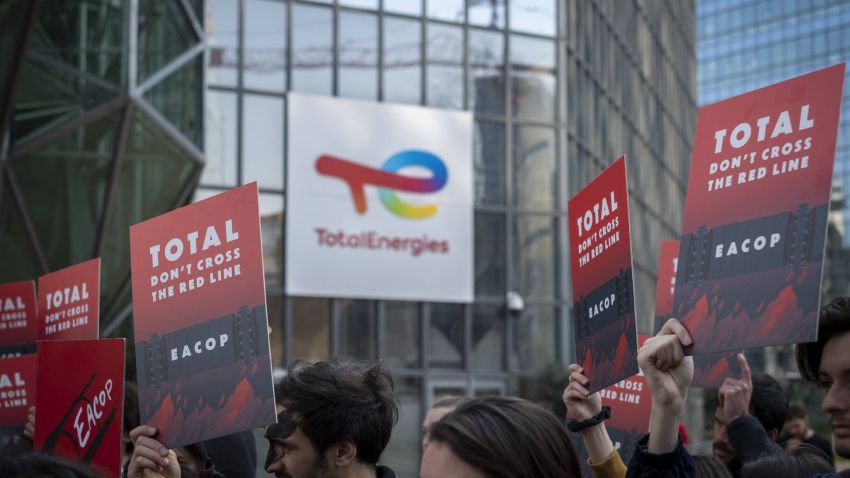In March, four environmentalist groups—Greenpeace France, Friends of the Earth France, Notre Affaire a Tous and Client Earth—launched an unprecedented legal case, charging the French oil giant TotalEnergies with what amounts to “criminal greenwashing.” Their 76-page summons claimed that the company had misled consumers by broadcasting its supposed ambitions of reaching net-zero carbon emissions by 2050, even as it ramped up overseas oil and gas activities.
Just one month before the suit was filed in Paris, TotalEnergies had reached a $10 billion final investment decision to back an infamous oil project: the behemoth East Africa Crude Oil Pipeline, or EACOP, which is set to be the longest heated oil pipeline in the world. Once completed, the pipeline will run 900 miles, connecting the Lake Albert region in Uganda’s west to the Port of Tanga in Tanzania’s east, ripping through farmlands and displacing thousands of families along the way. The project also involves developing Lake Albert’s Tilenga oilfield with hundreds of new wells that will spread from residential areas into protected animal habitats in Uganda’s famed Murchison Falls National Park.
The deal earned TotalEnergies a 62 percent stake in EACOP, with the remaining shares going to China’s state-controlled Chinese National Oil Offshore Corporation, or CNOOC, which owns an 8 percent stake in the pipeline, and the Ugandan and Tanzanian governments, which divided the remaining 30 percent. Construction is set to commence this year and wrap up by 2025, at which point Uganda will become an energy producer in its own right, as hundreds of thousands of barrels of oil flow through the pipeline each day for export.

